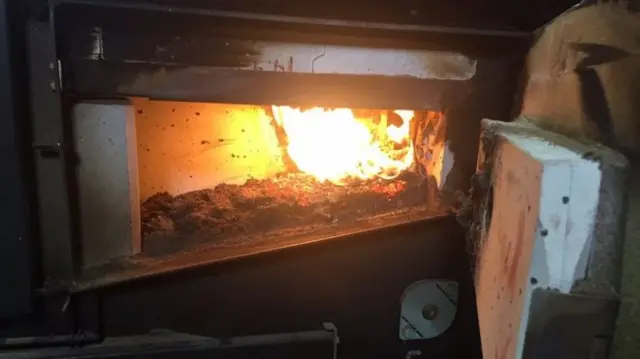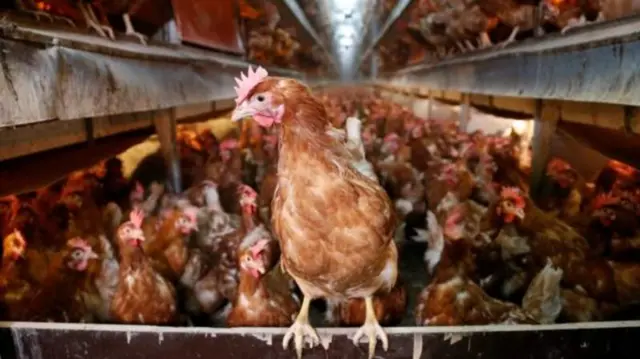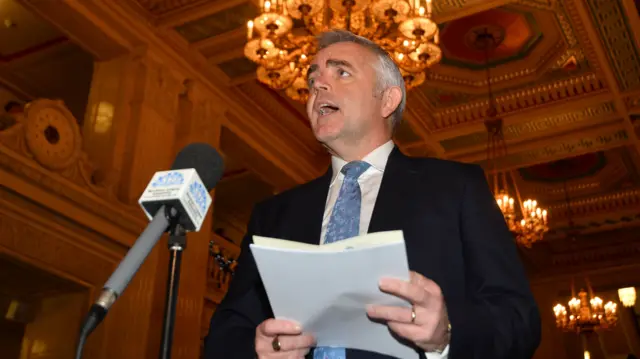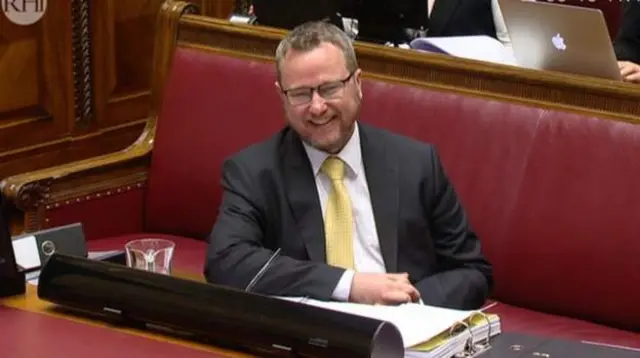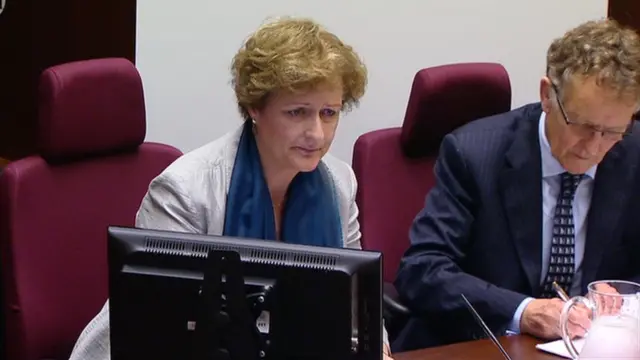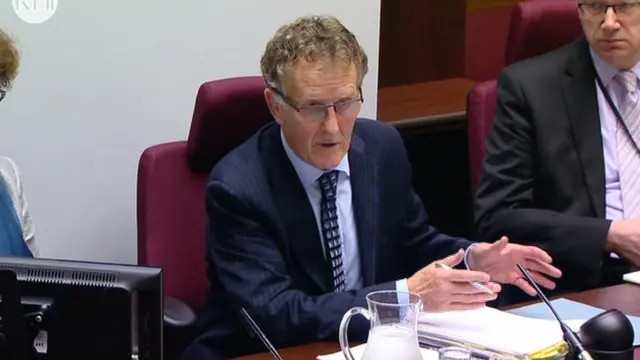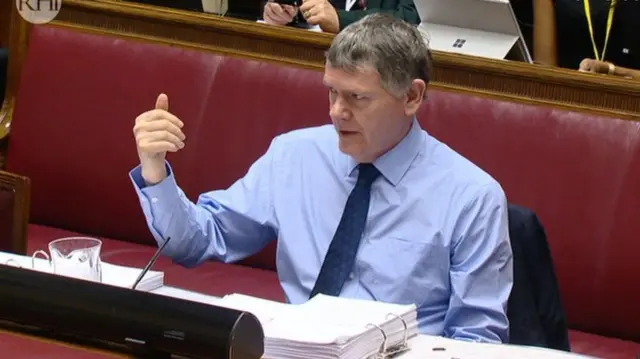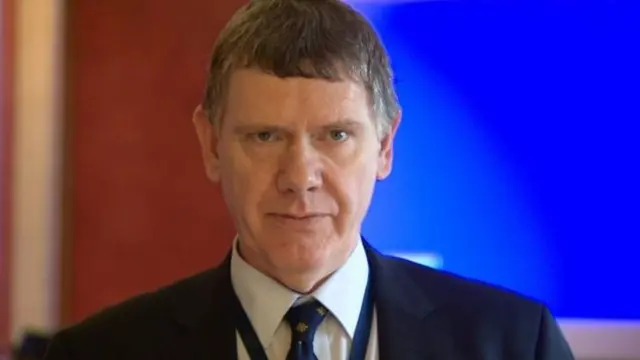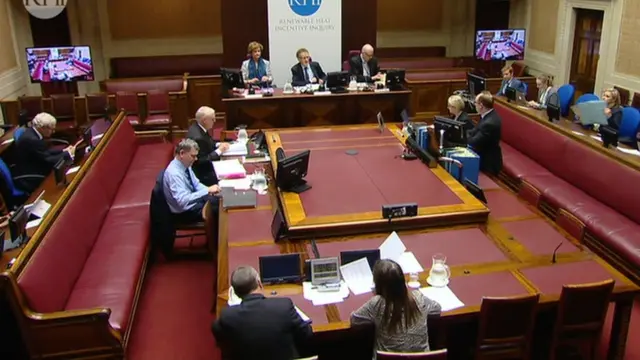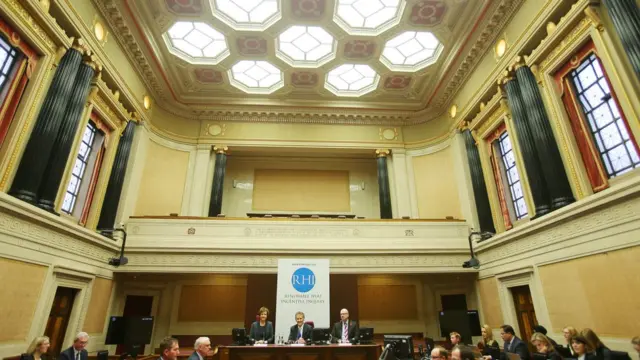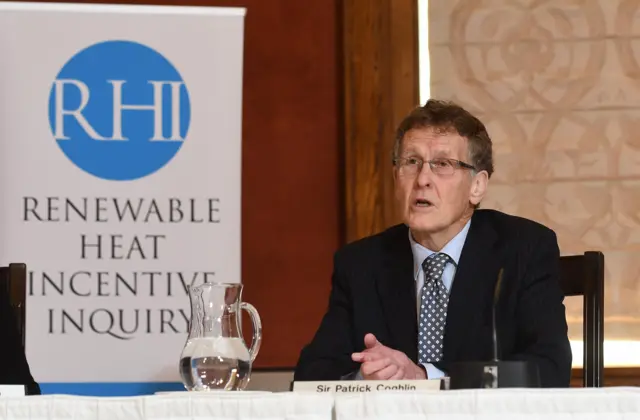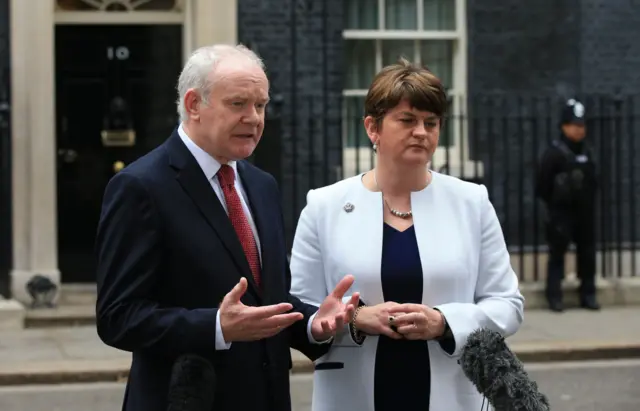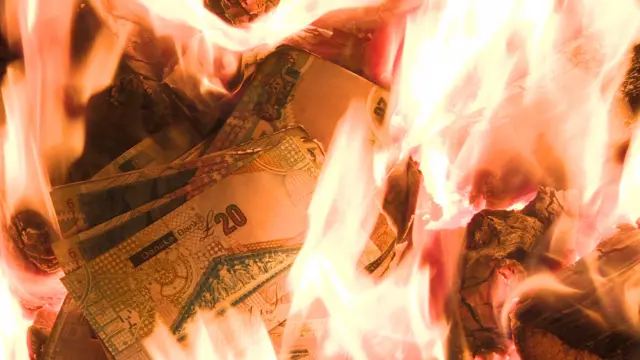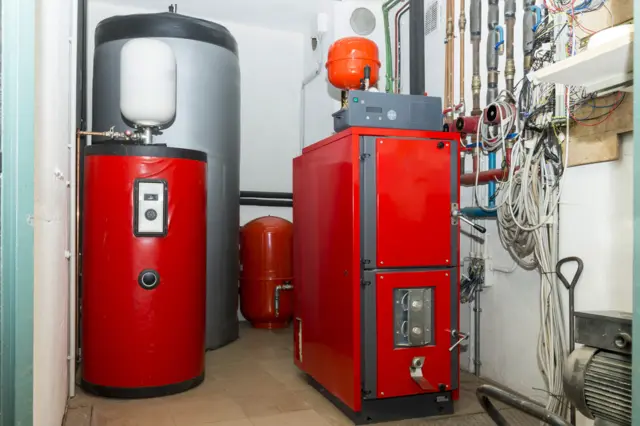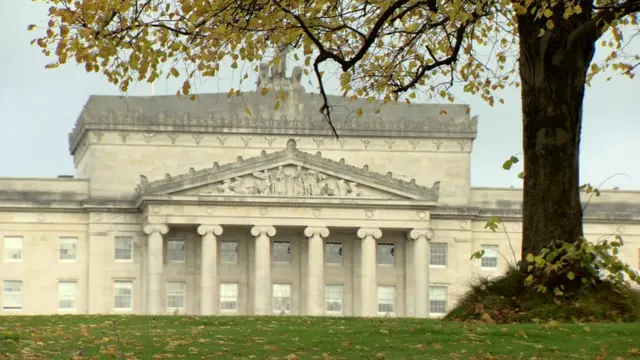'We should've given Bell more information on RHI spike'published at 12:09 BST 11 October 2018
Former enterprise minister Jonathan Bell told the inquiry last month that he had "great concern" that he wasn't kept informed about the surge in applications to the RHI scheme as it developed in autumn 2015.
Inquiry counsel David Scoffield says the minister doesn't seem to have been updated on developments with the scheme at any stage between late-August and mid-November that year.
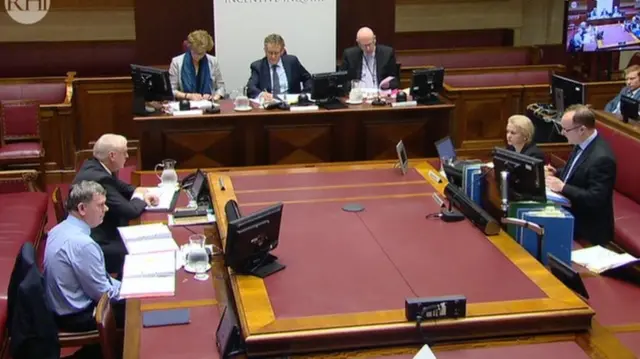 Image source, RHI Inquiry
Image source, RHI InquiryDr Andrew McCormick says he personally had some awareness of the surge up to and including early November, when he had very clear information.
"We probably could have and should have put more detail to him in that period," he concedes.
